JEDI Academy for Students Focuses on Mass Incarceration
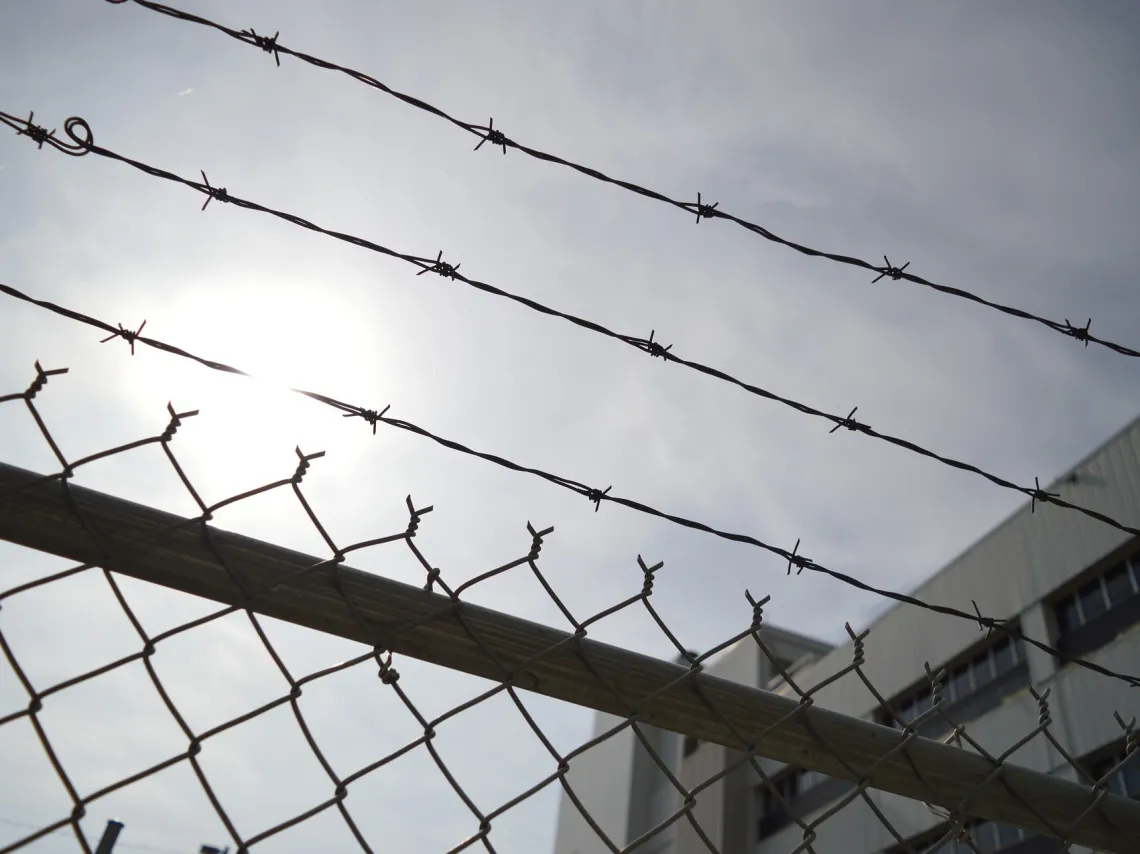
This August, the University of Arizona College of Social and Behavioral Sciences piloted a program designed to provide students with a holistic approach to issues related to justice, equity, diversity, and inclusion. Named the JEDI Summer Leadership Academy, the online, week-long seminar had more than 50 students enrolled.
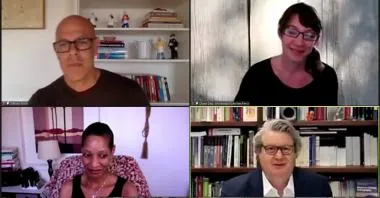
This year, the student-led program focused on the topic of mass incarceration, justice, and higher education. The academy was designed to help students develop their leadership skills, increase their knowledge about timely social issues, and train to be engaged advocates for social change.
The JEDI Academy emerged from the work and vision of the SBS DEI Working Group – as part of the group’s action plan. Maribel Alvarez, associate dean of community engagement for the College of Social and Behavioral Sciences, noted that the acronym JEDI adds a J for justice to the more familiar equity, diversity, and inclusion.
Alvarez said one of the most significant aspects of the JEDI Academy was the collaborative approach to crafting the curriculum.
“We actively sought the input and expertise of UA students and community members directly impacted by mass incarceration to help design the course,” Alvarez said. “This is a practice we will continue to use with other topics in the future; it flips the notion of expertise away from formal credentials in favor of the hard-won knowledge gained from lived experience, and that’s how we begin to practice social justice and inclusion authentically.”
Involving Students
Law major Lela Garcia, co-president of the SBS Ambassadors, coordinated this year’s program. She said that the SBS Ambassadors picked the topic because they wanted to learn more about mass incarceration.
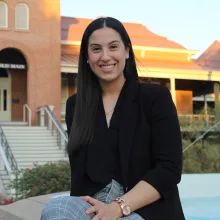
Lela Garcia
“We were really unaware of all the barriers that come with previously incarcerated individuals navigating higher education,” Garcia said. “We also chose this topic because oftentimes it seems that system-impacted individuals are left out of campus conversations.”
Garcia said that she thinks one of the reasons people don’t get involved or speak up about an issue is that they don’t feel knowledgeable.
“Especially with DEI work, the saying “ignorance is bliss’ could not be any less true,” Lela said. “Because at some point in one’s life, it’s really important to take the initiative and learn about the injustices that are impacting your community.”
Garcia added, “This is where I think the Jedi Academy can really come to play because we are bringing awareness to social justice initiatives and helping students understand their place in them.”
Learning from Lived Experience
During the week’s programming, students were joined by key experts in the field and directly-impacted community members and UArizona students. The itinerary included various policy experts, including Joel Feinman, the chief public defender for Pima County speaking on the inadequacies of the justice system and ideas for reform. The academy also included small group discussions, critical literacy and writing support, case studies, and social movement/civic action strategies.
The presenters included two formerly incarcerated SBS students.
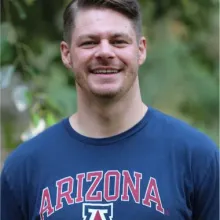
Zachary Stout graduated with a B.A. in 2020 with a triple major in PPEL (philosophy, politics, economics, and law), philosophy, and economics and is currently pursuing a dual master’s in legal studies and public policy. Stout, who plans to be a lawyer, advocates for criminal justice reform and increasing access to higher education.
Stout explained the challenges that come with the stigma of having been in prison, noting that society demands rehabilitation of incarcerated individuals but then creates an environment in prison and after prison that sabotages those aims.
“I had made a promise to myself to improve every single day,” said Stout. “It’s a feat that has been made extremely more difficult given the barriers that society imposes on you once you are released – when trying to find work or find a place to live and even in higher education.”
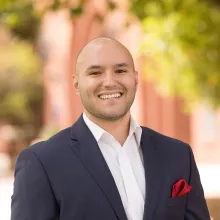
Enrique Alan Olivares-Pelayo
Enrique Alan Olivares-Pelayo was the recipient of the 2021 Provost Award and double majored in English and creative writing. He is currently enrolled in the accelerated master’s program in English and is the lead organizer for the ReFraming Justice project at American Friends Service Committee – Arizona.
Olivares-Pelayo says his experience with addiction and prison can add value to the university.
“A primary ambition of higher education is to collect people from diverse backgrounds and introduce them to each other, so that they can create new knowledge,” Olivares-Pelayo said. “So I feel like I'm in exactly the right place to help with that mission. And it's my responsibility to jam my foot in the door and make sure that it's easier for the next person.”
Facilitating Change
Journalism major Kiara Adams said that the academy gave her a renewed sense of what she can do to facilitate change.
“Being in this academy showed me that there are more people than just myself who care about these topics and want to see societal change and that we can work together to get one step closer to it,” Adams said.
“The academy was not only informative, it was personally transformative,” said law major Stephanie Knitter. “I gained new insights, I was offered numerous ways to participate in the community, and identified the skills I already possess and how to utilize them. Overall, the academy far exceeded my expectations and I'm so grateful I had this opportunity.”

